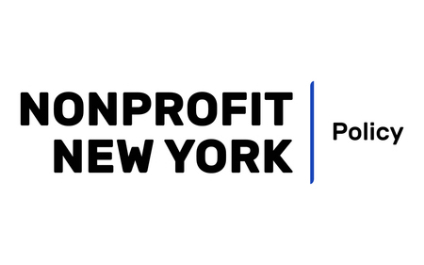Nonpartisan Nonprofits are Not Political Organizations, and their Donors Should be Protected
501c3 nonpartisan nonprofits are not political organizations. They have missions to promote arts and culture, spiritual nourishment, health, education, a clean environment, and bettering their communities. There are other types of “501c” nonprofits like c4s (social welfare) and c6s (business and professional associations) that can engage in partisan activity and unlimited lobbying. If you choose to donate to a 501c3 nonpartisan organization, New York could soon require your name and address to be publicly disclosed on the Tax Department’s website. That is because a bill pending in the state legislature would require many New York charities to identify all donors who provide $5,000 or more, or 2% of the total donations, in a tax year. This change would fly in the face of longstanding civil liberties, place certain donors at risk, and undermine the financial sustainability of nonpartisan nonprofits. Treating 501c3s like political organizations would also not create transparency for “dark money” – political spending by c4s that can receive unlimited donations from corporations, individuals, and unions who in some instances are not required to disclose their donors.
Our country has a long tradition of allowing nonpartisan nonprofits to keep donors’ names confidential. In 1958, at the height of the civil rights movement, the Supreme Court recognized how important it is for charities to be able to protect the names of their donors. The NAACP was working to integrate buses and schools in Alabama; the state retaliated by seeking the names of its donors. Rebuffing Alabama’s attempt, the Supreme Court held that “[i]nviolability of privacy in group association may in many circumstances be indispensable to preservation of freedom of association, particularly where a group espouses dissident beliefs.”
Eleven years later, Congress passed a law requiring the IRS to keep confidential the names of the major contributors to tax exempt public charities, which the charities report on “Schedule B” of their annual tax return. The Senate Finance Committee required this confidentiality because, “some donors prefer to give anonymously.” Until now, New York has kept this information strictly confidential, too. As recently as 2018, the Attorney General’s office assured a federal appeals court that it “has a ‘consistent practice’ of keeping Schedule Bs confidential and substantial protocols in place to maintain confidentiality.”
There are many reasons a donor might want to keep their contribution confidential. For donors to important but at times controversial causes, like LGBTQ rights or reproductive justice, public disclosure can place one at risk of harassment and violence. A donor may wish to not be solicited by other organizations after her wealth and giving nature is known. A donor may have a religious mandate to give anonymously. A survivor of domestic violence may wish to remain anonymous after they make a major gift to an organization that supported them because they are not public about their survivorship.
Nonprofits in New York provide incredible work and value to our state. We are 18% of the private workforce. But, it is well-known that the sector is chronically underfunded by the government, while doing much of the government’s work. Moreover, philanthropic giving has remained flat for the past few decades using constrictive and demanding budgets. One of the best ways a nonprofit can build financial sustainability is through unrestricted individual donations. Most experts are concerned that the 2017 federal tax law will lead to a long-term decrease in giving. Public disclosure of nonpartisan nonprofit donors will lead to even less giving.
Requiring 501c3 organizations to publicly disclose their donors will not help track the flow of money in politics, because tax exempt public charities are prohibited from engaging in partisan political activity. The proposed legislation does not deal with “dark money” coming into nonprofit organizations that can become politically involved, which as far as we can tell is a problem for federal elections. In New York, those organizations must already disclose electioneering donors and expenditures as a result of a number of recent improvements in campaign finance law. Nor can the bill further regulate private foundations, such as the Trump Foundation, more closely: the IRS website already makes public the names of private foundations’ donors.
Since Citizens United v. FEC, our nation has been grappling with increased “dark money” in politics, especially at the federal level. We want to shed light on this issue and work with the state to find a solution that does bring more sunlight to political financing. However, this bill would be a rushed, blunt attempt that would harm nonpartisan nonprofits by conflating them with partisan organizations without bringing more transparency to political donations.
New Yorkers are generous people. We donate more than $16 billion to charity each year. The nonprofit recipients of those donations depend on these donations to fulfill their missions. Our state government should do everything it can to promote charitable giving. The pending donor disclosure bill would do just the opposite. It must be defeated.

